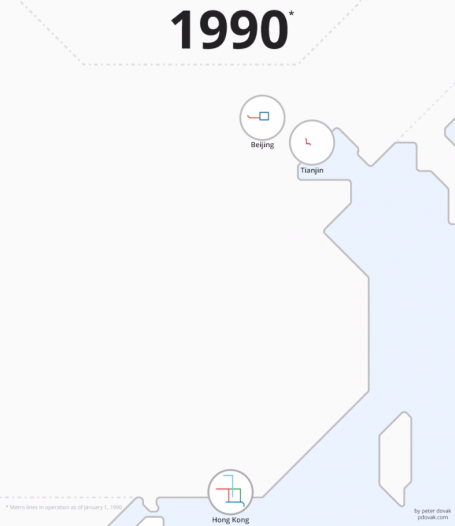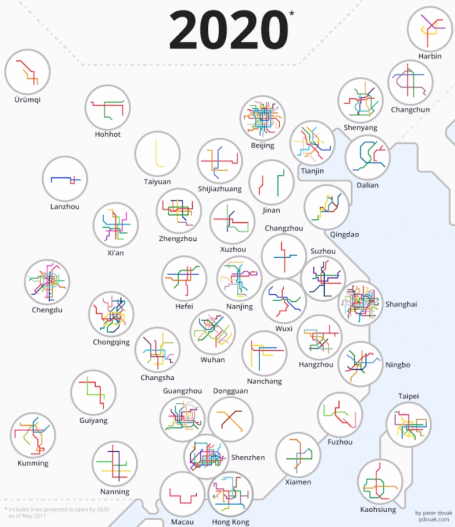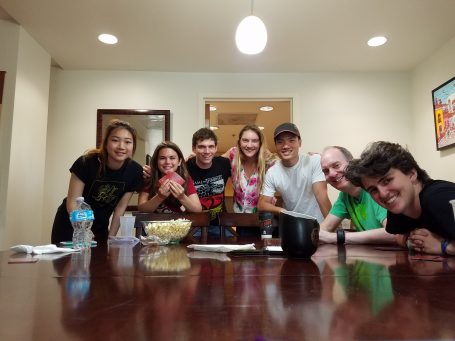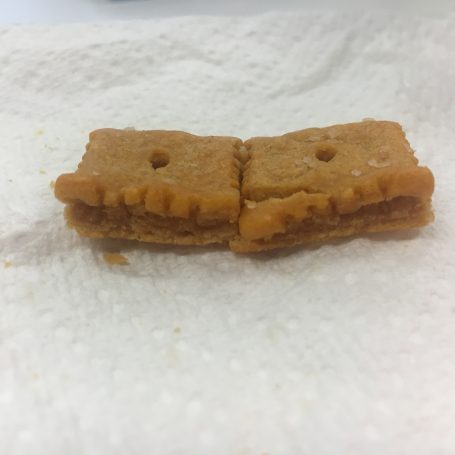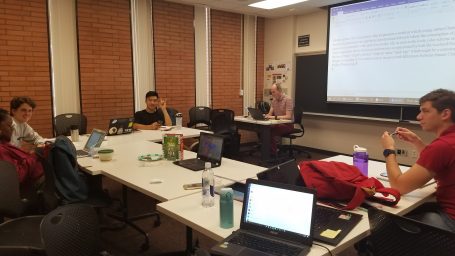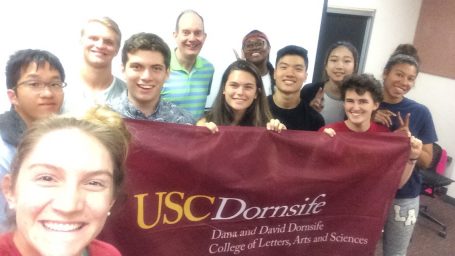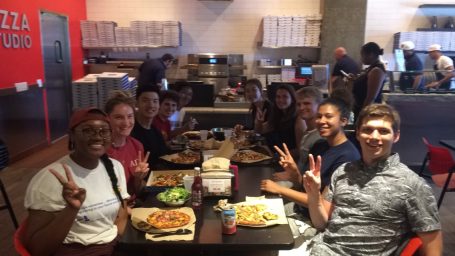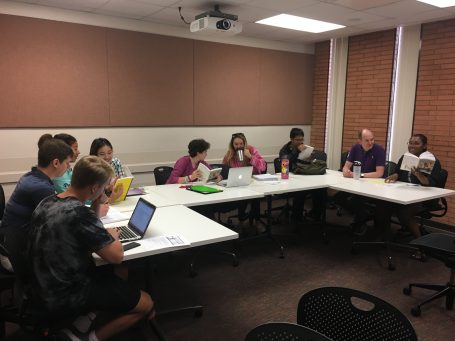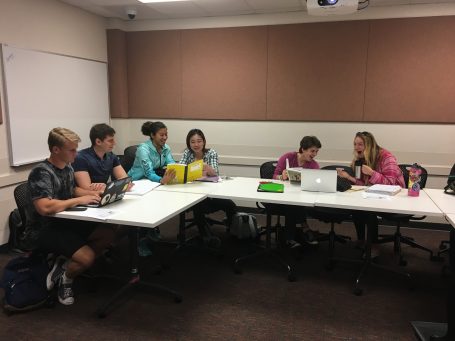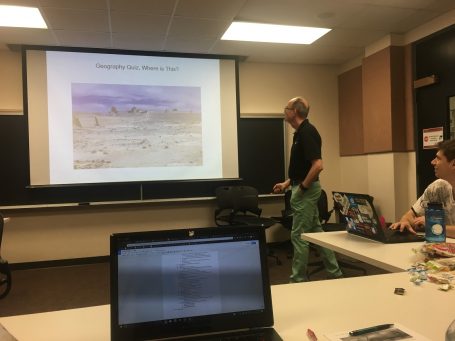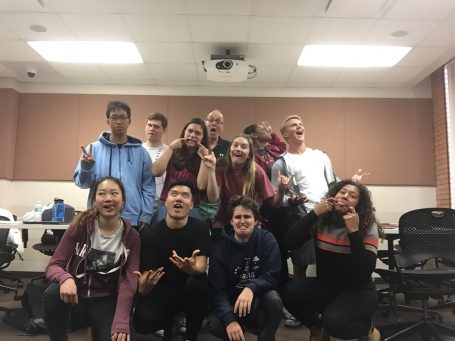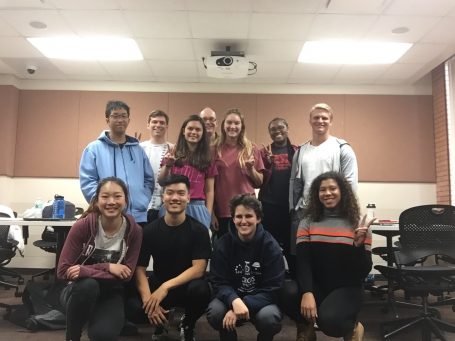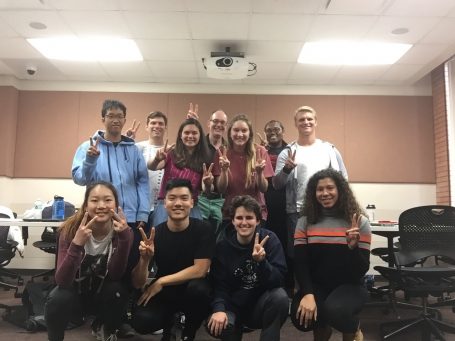By: Connor and Michael
We’ll let you in on a little secret: we finished our course material early, and class Friday was cancelled. Since we have all become bonafide experts on China and globalization in record time, we spent most of Thursday learning about the cities in China we are going to visit, and Professor Sheehan invited us to his apartment at Parkside’s Arts & Humanities Residential College to play board games on Friday.
Thursday we got to see the culmination of our journey as a class so far. (*cough* *cough* we had a quiz.) After we finished, we looked back as a class on the toolbox we’d put together regarding globalization and were nearly in awe of how much we had covered in two weeks. We went from not knowing anything about each other and vaguely understanding the macro-cultural process of globalization to being able to break down, analyze, argue, and defend our stances on the diffusion of various global cultures through visual advertisement. Feeling confident now in the preparation of our skills for fieldwork we went on to look at the destinations we would be visiting.
Professor Sheehan took us through a brief overview of Beijing, Shanghai and our journey in between. Sheehan told us about some of his past experiences with GEA and the hilarious antics that followed them around, growing our anticipation. Additionally, we looked at how much China has expanded, grown, and industrialized within our lifetimes and how it continues to do so, essentially changing the face of the country on an annual basis, reassuring us that the experience we are about to undergo is completely unique and original, unlike any GEA trip before us.
Photos above feature the expansion in proposed Chinese subway infrastructure, showing the difference between amount of subways in 1992 vs. 2020. This demonstrates the investment in modernizing China, as well as the continued growth in a variety of cities.
But of course, all that is the less fun part.
Prof. Sheehan was nice enough to have us over for an afternoon of games and class bonding before we head off to China together. Apparently, he is the board game master of Parkside in addition to the dorm dad, and has a collection of board and card games that would have been enough to keep us occupied for several weeks. Although not everyone was able to come, we had a great time having a relaxed day before our whirlwind trip begins.
Some of the games we played were Atlantis (in which you must save your plastic Meeple from a sinking island without being eaten by sharks or kraken), Guillotine (in which you gain points by beheading French nobles), and SushiGo (in which you pass a hand of cards around the table and each take one card, like a revolving sushi bar). It was a great way to spend time with each other before we are traveling and doing field work (i.e. shopping) in a foreign country where most of us don’t speak the language.
Finally, we’re all leaving for China very early in the morning tomorrow. We’ve had these last few days to pack and prepare, everything from mosquito repellant to a VPN to dodge the censors. The next time you hear from us, we’ll be on the ground in Beijing.
To be continued. . .

